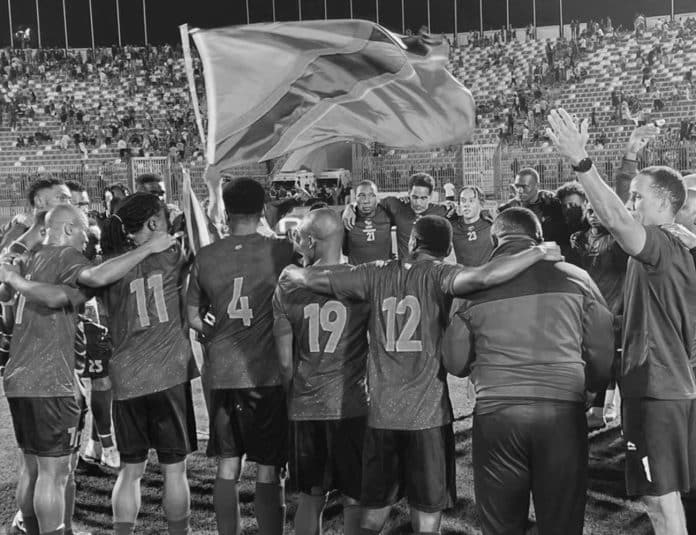Tanzania’s history in the African Cup of Nations
The Tanzania African Cup of Nations is relatively young compared to some of the more established footballing nations on the continent. The country first participated in the tournament in 1980 and has since made several appearances, albeit with mixed results. The early years were challenging for Tanzania, as the team struggled to make an impact and failed to progress beyond the group stages.
However, in recent years, Tanzania’s national team has shown significant improvement, gaining recognition as a rising force in African football. The team’s performance in the 2019 African Cup of Nations was particularly noteworthy, as they managed to reach the knockout stage for the first time in their history. This achievement was a testament to the team’s hard work and dedication, as well as the growing talent pool in Tanzanian football.
Factors contributing to Tanzania’s rise in the tournament
Several factors have contributed to the rise of Tanzania Africa Cup of Nations. One of the key factors is the increased investment in grassroots football development. The Tanzanian Football Federation has implemented various programs aimed at identifying and nurturing young talent across the country. These initiatives have helped in discovering and honing the skills of promising players who have gone on to represent the national team.

Another factor that has played a crucial role in Tanzania’s rise is the improved infrastructure and facilities for football. The government, in collaboration with private entities, has invested in the construction and renovation of stadiums, training grounds, and academies. This has provided the players with better training facilities and opportunities to enhance their skills.
Additionally, the increased exposure to international football has also contributed to Tanzania’s progress. Tanzanian clubs participating in continental competitions, such as the CAF Champions League and the CAF Confederation Cup, have gained valuable experience and exposure, which has translated into improved performances at the national level.
Key players in Tanzania’s national team

Tanzania’s national team boasts a talented group of players who have been instrumental in the team’s success in recent years. One of the standout players is Mbwana Samatta, who made history by becoming the first Tanzanian player to sign for a major European club, joining Aston Villa in the English Premier League. Samatta’s goal-scoring prowess and leadership qualities have made him a key figure in the national team.
Another player who has been crucial to Tanzania’s rise is Simon Msuva. Known for his speed and technical ability, Msuva has been a consistent performer for both club and country. His contributions on the wing and ability to create scoring opportunities have been invaluable to the team’s success.
In addition to these individuals, Tanzania’s national team has a strong core of players who have showcased their talent and potential on the international stage. These players, often with experience in local leagues or foreign leagues, bring a diverse range of skills and perspectives to the team, elevating its overall performance.
The impact of local leagues on Tanzania’s success

The development of strong domestic leagues has played a significant role in the success of the Tanzania African Cup of Nations. The Tanzanian Premier League has witnessed a marked improvement in recent years, with increased competition and professionalism. This has provided a platform for local players to showcase their abilities and gain valuable experience.
The presence of well-organized and competitive leagues has not only improved the quality of football in the country but has also created a pathway for young players to progress through the ranks. Local clubs have invested in their youth academies, providing structured training and development programs. This focus on youth development has resulted in the emergence of talented players who are now making their mark on the national stage.
Furthermore, the exposure gained by playing in domestic leagues has allowed players to attract interest from foreign clubs, providing them with opportunities to further their careers and enhance their skills. This exposure to different playing styles and higher levels of competition has been instrumental in the growth and development of Tanzanian football.
Coaching and development programs in Tanzania
Effective coaching and development programs have been crucial in nurturing the talent and potential of Tanzanian footballers. The Tanzanian Football Federation has made concerted efforts to improve the quality of coaching at all levels, from grassroots to the national team. The federation has partnered with international football associations and organizations to conduct coaching clinics and workshops, providing local coaches with the necessary knowledge and skills to enhance player development.
The focus on youth development has also been a key aspect of coaching programs in Tanzania. The country has established well-structured youth academies that provide specialized training and education to young players. These academies aim to develop not only the technical skills of the players but also their physical attributes and tactical understanding of the game.
In addition to coaching and development programs, the federation has also implemented talent identification systems to ensure that promising players are identified early and given the necessary support and opportunities to progress. These comprehensive programs have helped in creating a strong pipeline of talent for the national team, ensuring a sustainable future for Tanzanian football.
Support and infrastructure for football in Tanzania
The growth of Tanzanian football has been bolstered by the support and infrastructure provided by both the government and private entities. The government has recognized the importance of football as a means of national unity and development, and as a result, has invested in the construction and renovation of stadiums and training facilities.
These modern and well-equipped stadiums not only provide a suitable environment for matches but also attract larger crowds, creating a vibrant and electric atmosphere. The enthusiasm and passion of the fans have been vital in motivating the players and creating a home advantage during matches.
Private entities have also played a significant role in supporting Tanzanian football. Sponsors have invested in the development of youth academies, providing financial support for infrastructure, coaching staff, and player scholarships. These partnerships have helped in raising the standard of football in the country and creating a sustainable ecosystem for the sport.
Challenges faced by Tanzania in the African Cup of Nations

While the rise of the Tanzania Africa Cup of Nations is commendable, the team still faces several challenges on its path to success. One of the main challenges is the level of competition in the tournament. The African Cup of Nations features some of the best teams in the continent, many of whom have a rich footballing history and a strong presence in international competitions. Tanzania’s national team must continually strive to improve and compete at the same level as these established footballing nations.
Another challenge lies in the consistency of performance. While Tanzania has shown flashes of brilliance, the team needs to maintain a high level of performance throughout the tournament to make a lasting impact. This requires not only skill and talent but also mental resilience and the ability to handle pressure in high-stakes matches.
Additionally, the development of football infrastructure and facilities is an ongoing challenge. While progress has been made, there is still a need for further investment to ensure that the country has world-class training facilities and stadiums. The availability of quality training grounds and amenities can greatly enhance the development and performance of players.
The future of Tanzanian football
The future of Tanzanian football looks promising, as the country continues to make strides on the international stage. With the continued investment in grassroots development, coaching programs, and infrastructure, Tanzania is well-positioned to further improve its performance in the African Cup of Nations and other international competitions.
The success of individual players, such as Mbwana Samatta, serves as an inspiration for aspiring young footballers in Tanzania. The visibility and recognition gained by these players raise the profile of Tanzanian football and attract more interest and investment in the sport. This, in turn, will create a virtuous cycle, leading to the development of more talent and a stronger national team.
As Tanzania’s football reputation grows, so does national pride. The achievements of the national team in the African Cup of Nations are a source of inspiration and unity for the entire country. The passion and enthusiasm that fill the stadiums during matches are a reflection of the deep love for the sport among Tanzanians. With each match, Tanzania’s national team is not only putting the country on the football map but also inspiring a new generation of football-loving Tanzanians.
Tanzania’s journey in the African Cup of Nations
The rise of the Tanzania Africa Cup of Nations is a testament to the country’s growing footballing prowess. From humble beginnings to the international stage, Tanzania’s national team has made significant progress and continues to impress with its performances. The investment in grassroots development, improved infrastructure, and strong coaching programs have all contributed to the team’s success.
While challenges remain, Tanzania’s future in the African Cup of Nations looks promising. The country’s rich talent pool and passion for the sport provide a solid foundation for continued growth and success. As Tanzania’s national team continues to make waves in the tournament, the entire country stands united in support, celebrating the achievements and inspiring future generations of Tanzanian footballers.
For more articles related to Tanzania Sports, click here!
































